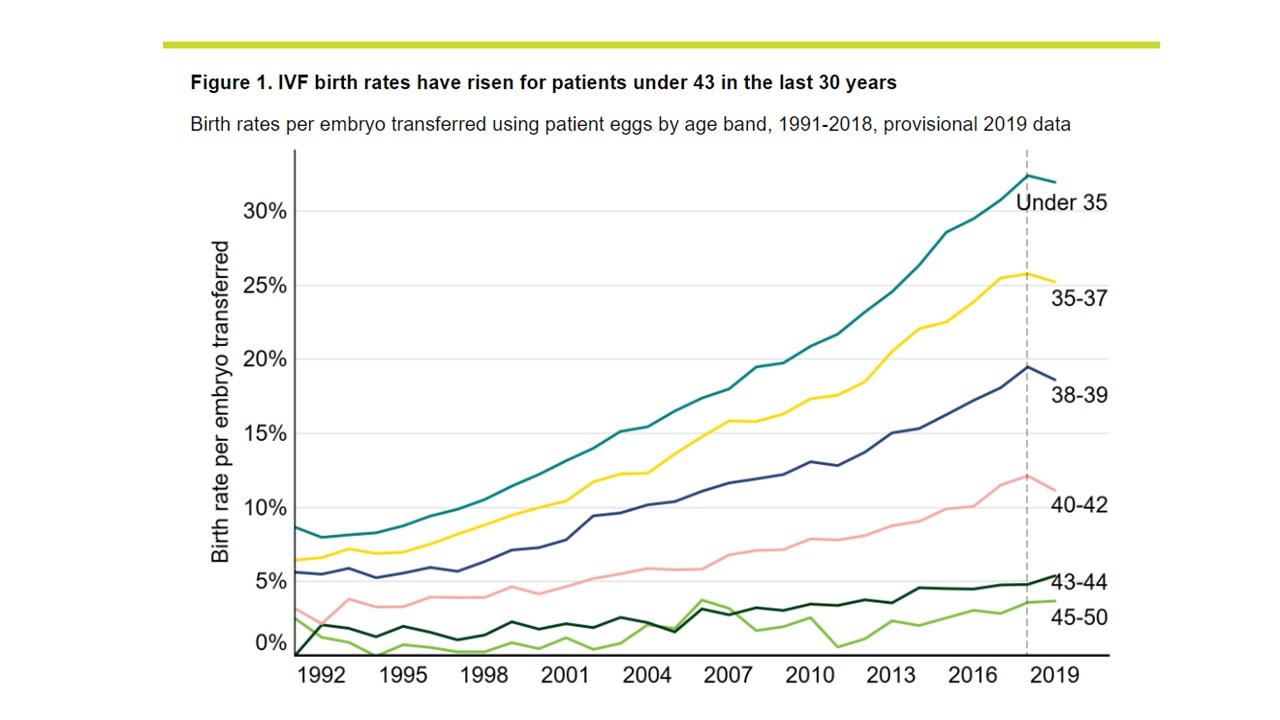.jpg)
14 February 2024
Fertility and age: knowing where you stand
There is no denying that the age women are having their first baby continues to rise due to a variety of reasons. What can you do to assess your fertility health, what really are your chances of having a baby in your late 30s, and is there anything you can do to preserve your fertility?
Dr Venkat, Director at Harley Street Fertility Clinic Director, highlights that, “the key to fertility is a woman’s ovarian reserve i.e. the availability of healthy eggs. A decline in ‘ovarian reserve’ means that not only do the ovaries have fewer eggs to offer, but the eggs they do have are of poorer quality. The challenge for many women choosing to have their first child mid-30s or later is that as part of the body’s natural aging process, a woman’s eggs age too. This can lead to infertility and/or miscarriage.” Achieving a natural pregnancy after 40 years of age is a challenge for many women, but getting pregnant is only half the journey. Miscarriage rates over 40 are 50% and rise quickly with each advancing year.
At Harley Street Fertility Clinic, we use a number of methods to evaluate a woman’s fertility health. It really is crucial to undergo fertility health-checks in order to know where you stand and if you need to take steps to preserve your fertility (such as egg freezing) for the future.
The HFEA report below highlights the rise in IVF birth rates for patients under 43.
Source: HFEA

Achieving a successful pregnancy as an older woman
There are tests and investigations that can prevent miscarriages and failed embryo implantation, and below we highlight a few.
Fertility check-ups
The first steps in assessing a woman’s fertility are fertility check-ups, to understand one's reproductive health. Even if immediate plans for starting a family aren't on the horizon, these tests serve as a crucial diagnostic tool, offering insights into fertility status and potential challenges. A standard fertility check-up includes essential blood tests to examine hormone levels (AMH, FSH, E2, LH, prolactin, thyroid, and vitamin D) and a pelvic ultrasound to assess ovarian health. A fertility specialist will then review the results with you in a follow-up consultation, answering any questions and providing guidance on recommended steps, treatments, and future planning for your fertility journey. The fertility check-up equips women with valuable information for informed family planning decisions and significantly reduces the emotional stress of the ‘otherwise unknowns’ . Whether contemplating starting a family today, delay in starting a family and considering fertility preservation through egg freezing, the fertility check-up serves as a pivotal guide. A few leading clinics like Harley Street Fertility Clinic will have a consultation before any tests to fully understand your fertility history and include any advanced investigations required to determine the optimum protocol and treatment.
Immunology
Advanced maternal age is often associated with changes in the immune system, leading to increased inflammatory responses and altered immune regulation. These shifts can impact the uterine environment, making it less conducive to successful implantation. Immunological approaches in fertility treatment with older women focus on modulating the immune response to create a more favourable setting for conception and pregnancy. Tailored interventions, such as immunomodulatory therapies, aim to balance the immune system and reduce inflammation, potentially enhancing the chances of successful implantation and a healthy pregnancy. By delving into the intricate interplay between the immune system and reproductive processes, immunology offers a promising avenue for personalized and effective fertility solutions in the context of advanced maternal age.
Uterine Health
Uterine health plays a pivotal role in fertility, especially for women navigating the challenges of advanced age. As women age, the uterus undergoes changes that can impact its receptivity to embryo implantation. Addressing uterine health becomes crucial in optimizing the chances of conception and maintaining a healthy pregnancy. Advanced maternal age may be associated with conditions such as uterine fibroids, polyps, or endometrial abnormalities, which can hinder successful implantation. Focusing on uterine health involves comprehensive assessments, including imaging studies and diagnostic procedures, to identify and address any underlying issues. Treatments may range from minimally invasive procedures to correct structural abnormalities through to hormone-based therapies that optimize the uterine lining. Simple lifestyle modifications and nutritional support can also greatly contribute to overall uterine well-being. By prioritizing uterine health through targeted interventions, older women seeking to conceive can enhance their reproductive potential and foster a more conducive environment for successful pregnancies.
Taking a proactive and personalized approach empowers women to make informed choices, whether starting a family, delaying pregnancy, or considering fertility preservation options. Embracing these measures enhances reproductive potential and supports successful pregnancies despite advancing maternal age.
.jpg?upsize=true&upscale=true&width=400&height=200&name=Untitled%20design%20(1).jpg)

